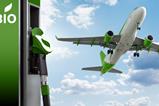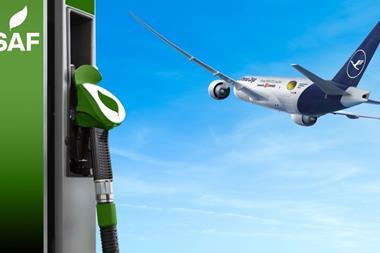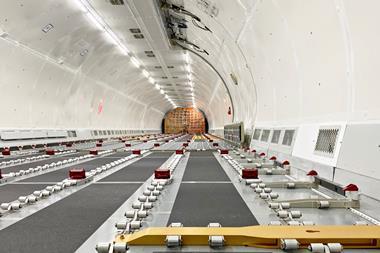Lufthansa's cargo business has registered record results for the second year in a row as it benefits from improved demand and higher airfreight rates.
The Germany-based airline's logistics division, which includes Lufthansa Cargo, Jettainer, time:matters and its investment in AeroLogic, saw revenues for 2021 increase by 38% year on year to €3.8bn and earnings before interest and tax improved by 109% on a year earlier to reach €1.5bn.
Cargo traffic for the year increased by 11% to 7.2bn revenue cargo tonne kms and its cargo load factor improved by 1.7 percentage points to reach 71%.
The company said that yields were double pre-Covid levels. It also benefitted from a cost cutting programme launched before the pandemic.
"In the reporting year, the market for airfreight continued to be characterised by extreme shortages in belly capacities due to the coronavirus pandemic," Lufthansa said in its annual report.
"Lufthansa Cargo was also lacking a large part of the belly capacities of the Group airlines that would normally transport half of the total freight volume.
"Flexible network planning, the use of passenger aircraft as pure freighters and the delayed retirement of the Boeing MD-11F fleet were only able to partially compensate for these effects.
"As demand for the remaining freight capacities increased significantly due to global supply bottlenecks and disruptions in ocean freight traffic, it was possible to achieve average prices and high load factors that were unprecedented in a historical comparison. Revenue and earnings therefore achieved new record levels."
Last year the carrier added two new B777 freighters to its cargo fleet, which now stands at 15 B777Fs, including its AeroLogic share.
The airline will welcome A321 freighter capacity this year as it targets the e-commerce business.
Lufthansa Cargo also offers the belly capacities of Lufthansa, Austrian Airlines, Brussels Airlines, Eurowings Discover and SunExpress.
Lufthansa Cargo chief executive Dorothea von Boxberg said that capacity would likely remain a challenge in the year ahead.
"The issue of scarce capacity will continue to occupy us and our customers this year," she said. "With the marketing of the capacities of our first A321 freighter, which has just started, we want to offer customers new options for the ever-growing e-commerce sector, especially in the medium-haul segment.
"In addition, belly capacities on Lufthansa Group airlines will again increase significantly this year. We are currently examining further options to increase our capacity offering.
"At present, however, we also see that the situation in airfreight remains dynamic and that we have to react to developments on the world market at short notice and remain flexible."
She added that the company would also continue to focus on its emission reduction efforts this year.
"We owe this result in particular to our employees, customers and partners," said von Boxberg.
"Together, we have managed to effectively maintain global supply chains even in times of pandemic.
"In addition to good revenues, the successful completion of our cost reduction program was a key factor in the good result.
"In 2022, we will continue to invest in customer focus, airfreight innovation and sustainability."















